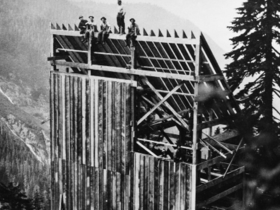Aggrieved investors in Brazil’s have suffered over the past two years as an investigation into the state-run oil company has showed how corrupt former directors spent company funds on everything from art collections to Range Rover Evoques.
But the most recent allegations in the , in which prosecutors allege former directors conspired with politicians and contractors to defraud the company, take this one step further.
Prosecutors claim Paulo Ferreira, a former treasurer of Brazil’s erstwhile ruling Workers’ party, took money originally destined for a research and development centre for Petrobras’s ultra-deepwater oilfields and used it to pay a samba queen a monthly stipend.
“At the request of Paulo Ferreira, there were made diverse payments to the non-governmental organisation Sociedade Recreativa e Beneficente Estado Maior da Restinga, a samba school, and people linked to it, such as Viviane Rodrigues da Silva, the battery queen,” said a court document outlining Mr Ferreira’s arrest. He was not available for comment.
The steady stream of corruption allegations is proving an irritant for Petrobras, not just with criminal investigators in Brazil but with institutional investors in New York.
In a class-action lawsuit led by the UK’s Universities Superannuation Scheme and backed by a range of the biggest global pension funds, investors have sued the company in the US district court in Manhattan for allegedly misrepresenting its financial accounts by hiding widespread fraud.
Now lawyers for the plaintiffs are seeking to speed up that lawsuit by filing a motion for a partial summary judgment with US district court judge Jed Rakoff, ahead of an eight-week trial scheduled to start on September 19.
“Petrobras raised tens of billions of dollars from investors during the class period under the pretence that it would be used to improve the company, but instead knowingly doled out the money to insiders and politicians,” says the motion.
It says the facts overwhelmingly suggest there was a violation of securities law and the trial should focus not on disputing whether there was fraud but on how much Petrobras should be required to pay investors in compensation.
“The only issue to go to trial would be the level of damages,” says Jeremy Lieberman, attorney for the plaintiffs at Pomerantz, a law firm.
Petrobras and Cleary Gottlieb Steen & Hamilton, the company’s lawyers, did not immediately respond to requests for comment. , Petrobras’s new chief executive, said last month the company was a victim of fraud, estimated to have cost it about $2.5bn in losses directly related to corruption.
Analysts highlight how any damages ruling against Petrobras would add to its already enormous debt load. Some in the market say the investor lawsuit could result in the third-largest payout in a securities fraud case after Enron and WorldCom.
Concern over Petrobras’s financial profile is driven by its coming due — $26.5bn out of total gross debt of $126bn — between April this year and the end of 2017. The company has the largest debt load in the energy industry.
“They have to sell a lot of assets or have market access to avert a default,” says Nymia Almeida of Moody’s Investors Service.
She adds that while the investor lawsuit was factored into Moody’s B3 junk rating for the company, which implies some level of government support for Petrobras should it run into greater financial difficulty, the details of any payout would be important. This includes how long Petrobras would have to find the money.
Other analysts say while Petrobras is producing enough cash to meet its debt interest payments and pay for capital expenditure on its deepwater oilfields, it could struggle to reduce its borrowings.
At more than six times earnings before interest, taxation, depreciation and amortisation, Petrobras’s gross debt is high and would be reduced only through asset sales, says Lucas Aristizabal of Fitch, which has a BB rating on Petrobras’s borrowings.
The secret will be to maintain liquidity, with cash and marketable securities currently at $22.6bn, while the company tries to run an to sell $15bn of assets by the end of this year, he adds. So far, only about $2bn has been sold or committed to disposal.
“That is the only way they will be able to pay down debt,” says Mr Aristizabal.
He adds the appointment of Mr Parente, a former head of the Brazilian operations of , the trading house, who is seen as market friendly, could be good for Petrobras.
“If the new CEO comes with a private sector mentality and is not operating [the] company to favour any political agenda, that would be positive for the company,” says Mr Aristizabal.
In the meantime, with the Petrobras investigations continuing, investors will be left wondering what new surprises they might uncover about what past directors were doing with the company’s money.










